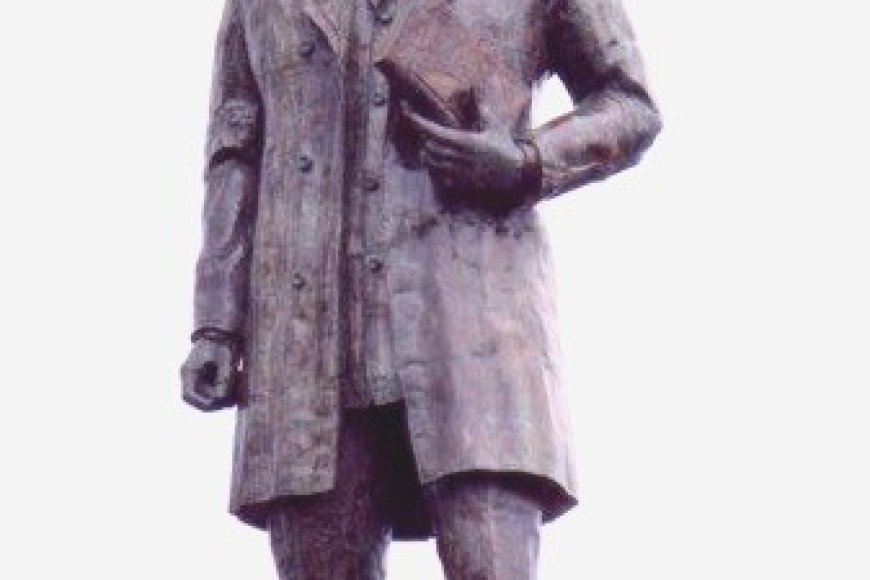State joins 18 others in legal challenge to president's executive order
Nevada Attorney General Aaron Ford speaks during a news conference at the Nevada Attorney General’s Las Vegas office Tuesday, Jan. 21, 2025. Attorneys general from 18 states, including Nevada, are suing the Trump administration to stop it from eliminating birthright citizenship. Photo by: Steve Marcus
By Haajrah Gilani (contact)
Monday, May 5, 2025 | 5:41 p.m.
Nevada Attorney General Aaron Ford — amid over a dozen ongoing legal challenges against President Donald Trump’s administration — is looking to block his “election integrity” executive order.
The order aims to tighten voter registration regulations through changes, including a new national mail voter registration form that mandates applicants to show a document verifying U.S. citizenship.
The president has been facing court battles since he issued the order in March, with opponents concerned it would create accessibility barriers or that it’s an unnecessary use of power given no evidence of widespread noncitizen voting.
Ford, a 2026 Democratic gubernatorial race hopeful, joined 18 other attorneys general Thursday to seek a preliminary injunction on what he described as an attack on democracy. The coalition filed in an effort spearheaded by Ford and California Attorney General Rob Bonta, making the argument that Trump is overexerting his executive authority when election regulation should be left to the states and Congress.
“The president does not have the power to regulate elections — as such, this executive order is nothing more than an attempt at an illegal power grab,” Ford said in a statement. “I co-led this lawsuit because I cannot let this attempt stand.”
Trump’s March 25 order tasks the independent Election Assistance Commission with creating the new registration form to fit the standards he outlined. Among his latest setbacks in court came when a federal judge in Washington, D.C. blocked some propositions, including the proof-of-citizenship requirement to the federal voter registration form, though the same judge allowed his measure for a “uniform and nondiscriminatory” ballot receipt deadline of Election Day for all methods of voting with few exceptions.
Trump’s sweeping order comes as Congress is weighing similar voting changes with the Safeguard American Voter Eligibility Act, or the SAVE Act. The bill passed the House in April with a 220-208 vote, with all three Democrats from the state voting against it and lone Nevada Republican Rep. Mark Amodei in support. It’s currently pending review from the Senate.
Similar to the executive order, the Trump-backed SAVE Act would require a aspiring voters to provide documentary evidence of U.S. citizenship when registering to vote in federal elections. Its critics warn about citizens without the necessary documents like a passport or extra complications for married women whose birth certificates wouldn’t match their current names.
In the lawsuit against the executive order, the attorneys general claim the proof of citizenship requirements have inconvenienced some state elections officials as they now have to find ways to carry out their voter registration obligations, under the looming threats of losing federal funding.
“This serves as a critical first step to ensure that we maintain election integrity throughout our country,” said the bill’s House sponsor Rep. Chip Roy, R-Texas, in a statement when the SAVE Act passed the House.
Nevadans will also have a more direct say in the role voter identification plays in elections, with a question appearing for the second and final time on ballots next year. The initiative would mandate presenting photo identification before voting in person or providing a Social Security or driver’s license number if voting by mail. It passed with support from about 73% of voters in November, according to secretary of state data from the general election.
“Nevada voters agreed with me, and Voter ID received more total votes than any candidate or any question on the 2024 ballot,” said Gov. Joe Lombardo in his January State of the State address. “And I expect it to pass overwhelmingly again in 2026.”
States accompanying Nevada and California in seeking the preliminary injunction include Arizona, Colorado, Connecticut, Delaware, Hawaii, Illinois, Maine, Massachusetts, Maryland, Michigan, Minnesota, New Jersey, New Mexico, New York, Rhode Island, Vermont and Wisconsin.
.png)









 English (US) ·
English (US) ·